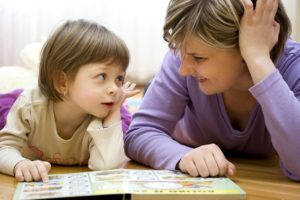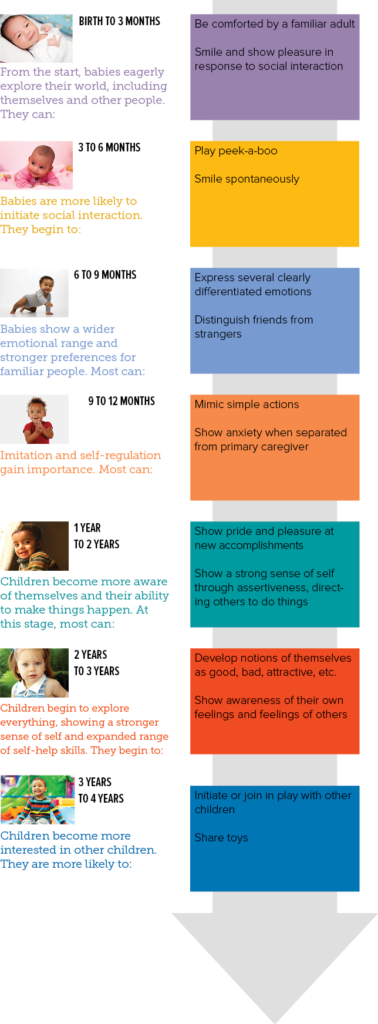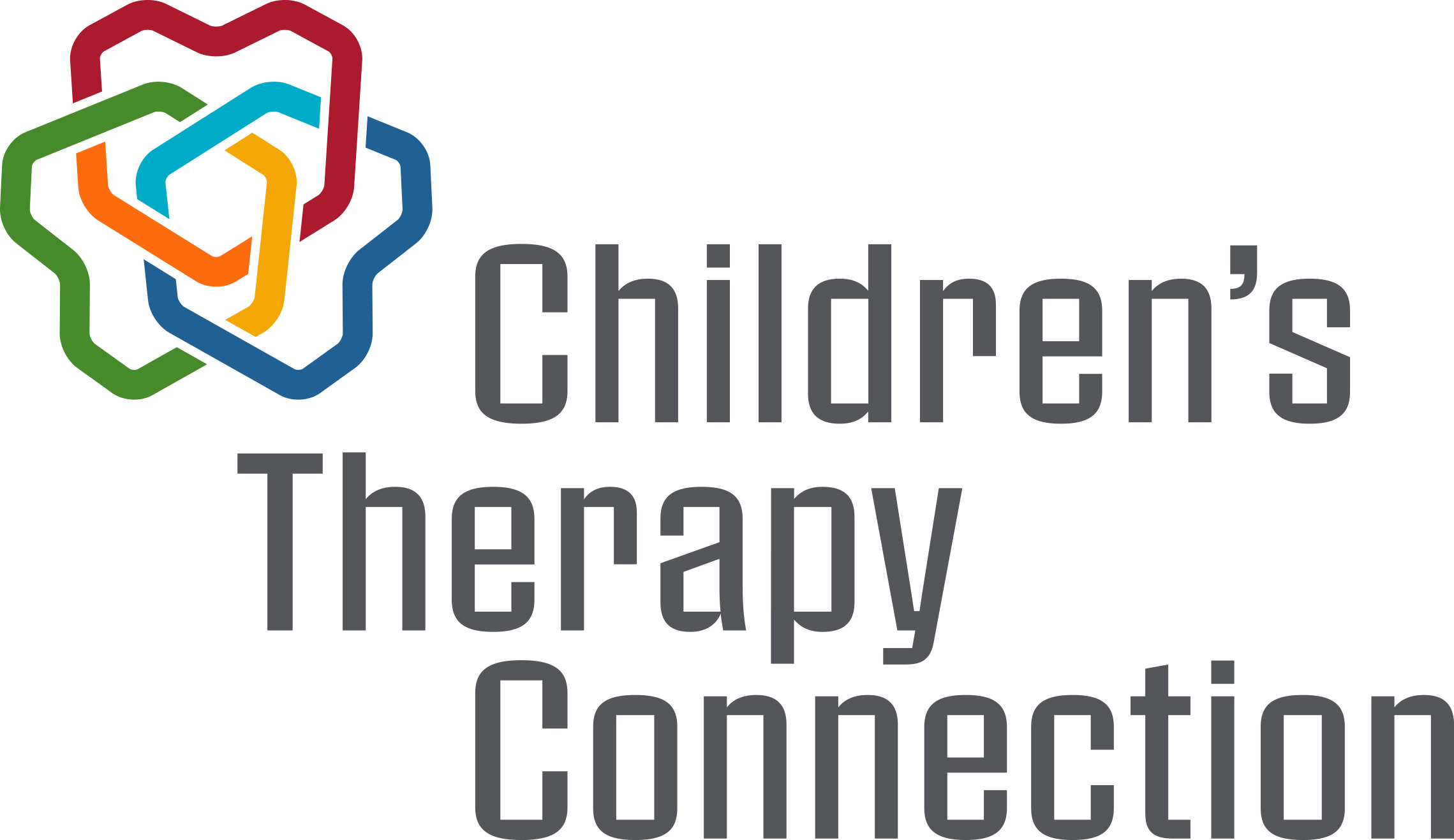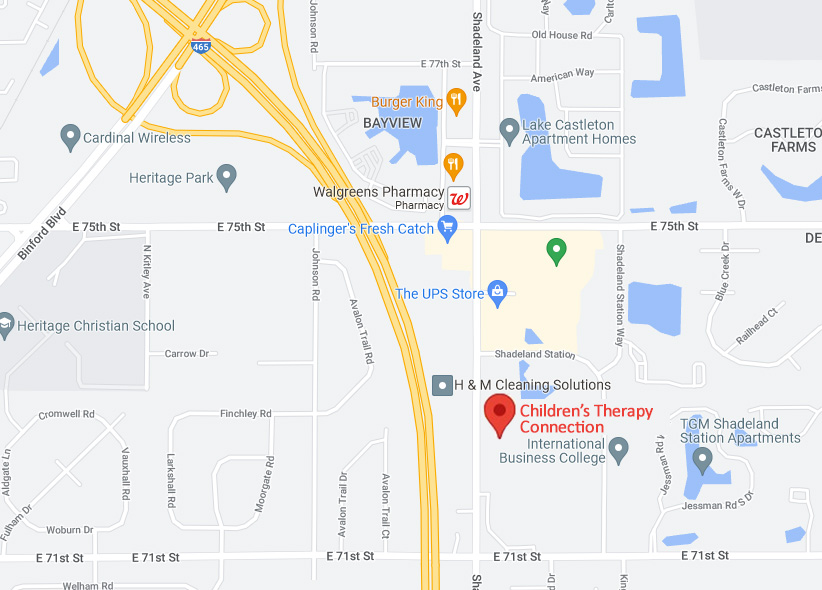Many parents pay careful attention to their child’s major physical and language milestones, like first tooth, first steps, first words. But do you know the less obvious social and emotional milestones that can also help you determine if your child is on the right track?

What is Social-Emotional Development?
Social-Emotional skills are those skills that allow people to interact appropriately with others. In young children, these skills include things like making eye contact, communicating their feelings with adults, and even starting to share toys and objects with other people.
What should I look for?

-Even before children begin to speak, they should be socially engaged with the people around them. Look for the behaviors listed below to make sure your child is appropriately engaged.
-Young children typically use eye contact when they babble, even if the words or sounds they are making don’t have clear meaning. When your child becomes sad, he or she should look at someone to show this sadness. If something funny happens, your child should also look at whoever is nearby while laughing. They should want to share their feelings with the people nearby.
-Children should also point out things they see (like an airplane flying overheard or a dog down the street), not just things they want (like a cup of milk or a cookie). Your child should want you to experience the things they experience and notice the things they notice.
-Typically developing children often hand things to adults and then smile and wait for the adult to hand the object back. The child isn’t giving you the object because he or she wants you to do something with it. He/she is giving the object because it is an easy way to interact. As children get older, they may offer you a turn with a toy or a sip out of their cup as a way to show their interest in interacting with you.
What about tantrums?
Temper tantrums, although exhausting, are a typical stage of development. Children learn that they have their own opinions and that they can express those to get what they want. They also may have tantrums because they struggle to handle disappointment appropriately. It is important for parents to remain calm during tantrums and help children learn the right way to ask for things or to express their feelings. If your child has tantrums that lead to injuries (of self or others) or that damage property, it may be time to seek the help of an expert.
If you are worried that your child isn’t on track with his or her social-emotional skills, it may be time to get some help. Contact our office if you are concerned about the social-emotional development of your child.
You can learn more with the online resources below for more information:
http://csefel.vanderbilt.edu/resources/family.html
https://www.zerotothree.org/espanol/social-and-emotional-development

